#zero discrimination day
Explore tagged Tumblr posts
Text
Today is Zero Discrimination Day.
Remember that, until we are all free, none of us is free (cf. Emma Lazarus, 1883).
10 notes
·
View notes
Text

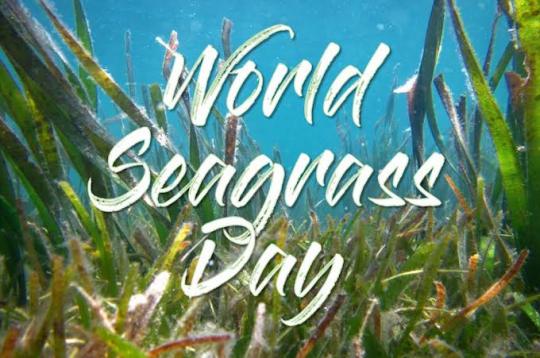
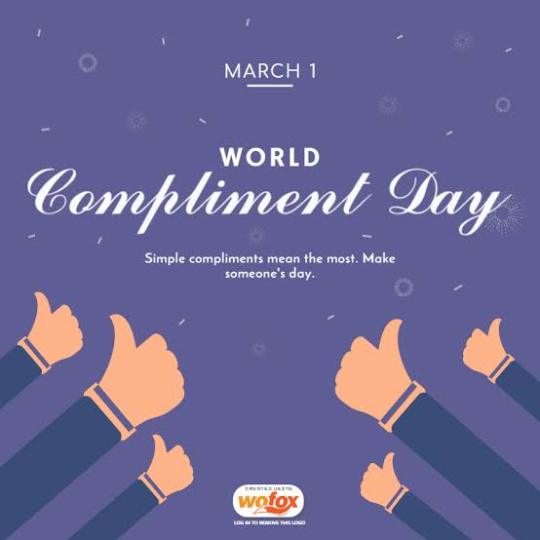

Today is 1st of March.
Today is Zero Discrimination Day, World Seagrass Day, World Compliment Day, Share a Smile Day.
2 notes
·
View notes
Text
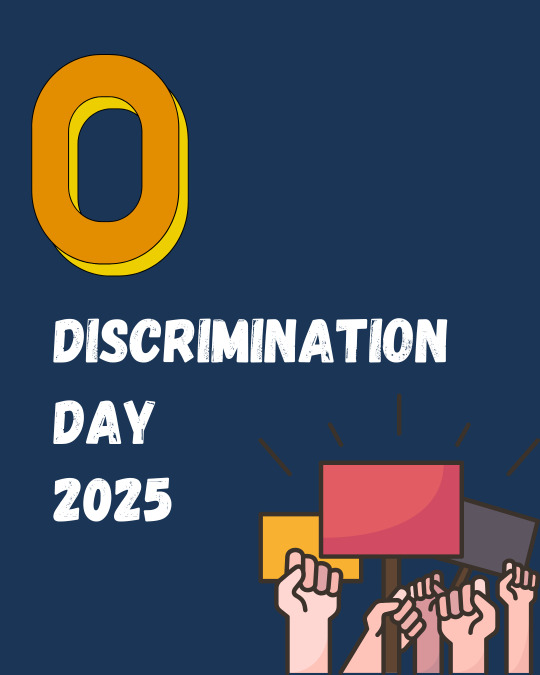
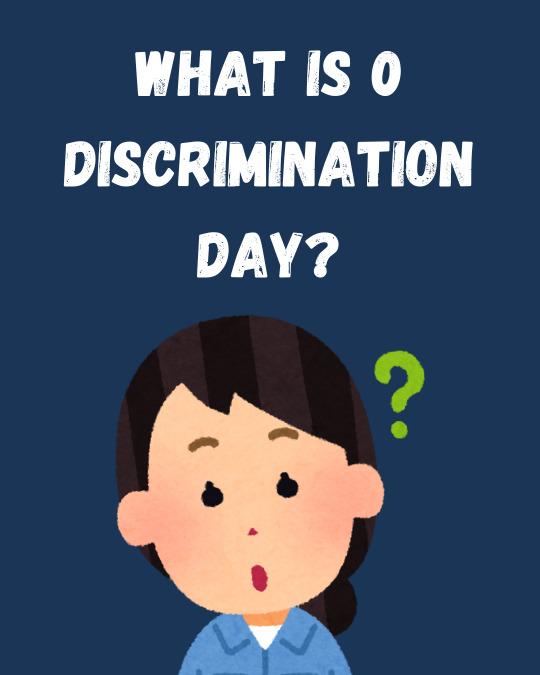
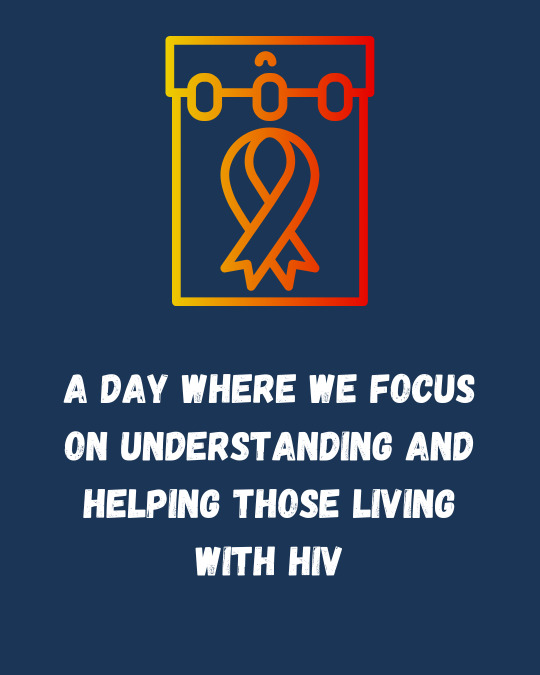
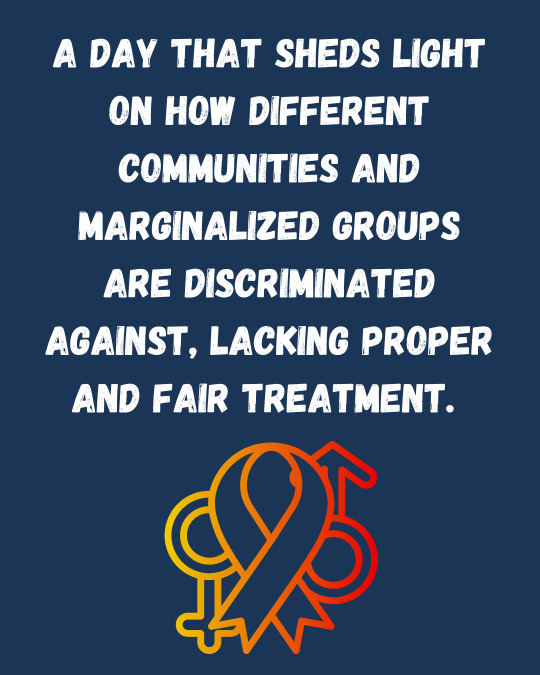
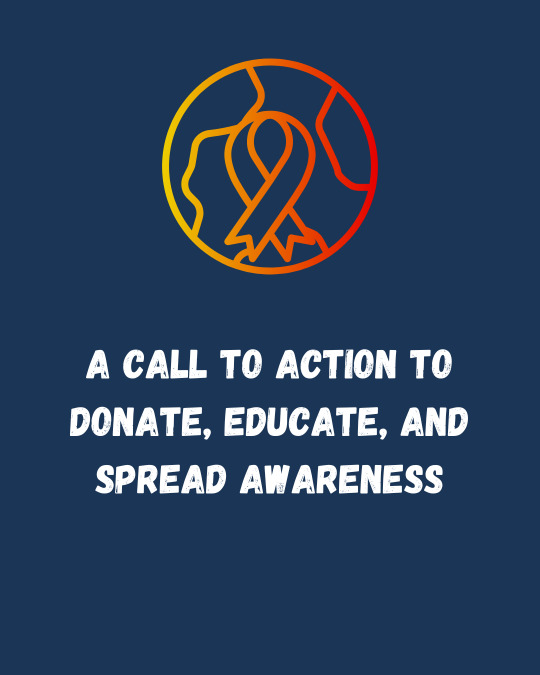
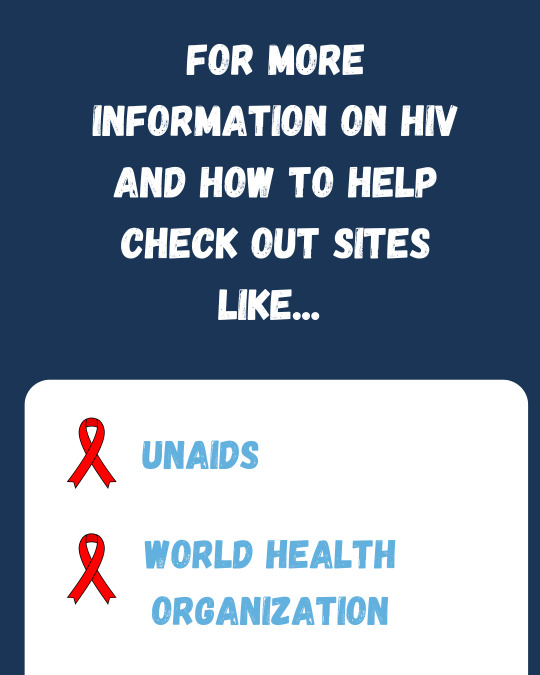
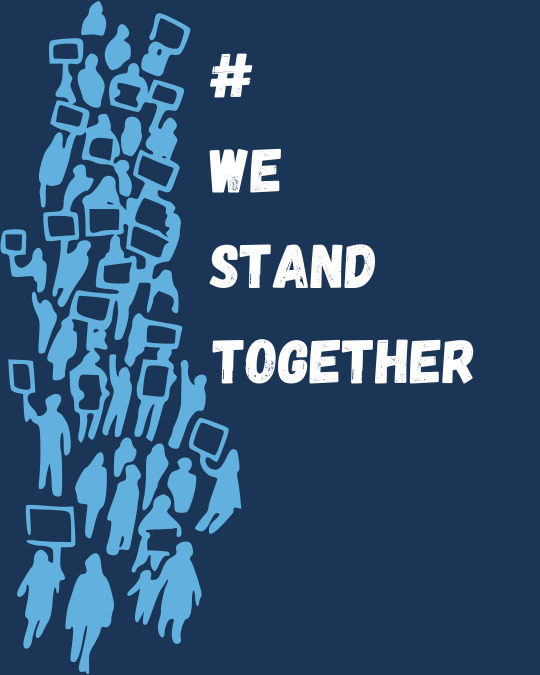
#we stand together#zero discrimination day#hiv aids#healthcare#lgbtqia#marginalized communities#discrimination
0 notes
Text
Embracing Equality: Celebrating United Nations Zero Discrimination Day 2025
While “Hot Zimbabwe Jobs” focuses on career opportunities, it’s essential to recognize that a fair and inclusive workplace is fundamental for everyone. United Nations Zero Discrimination Day, celebrated annually, reminds us of the importance of equality and the need to challenge discrimination in all its forms. What is Zero Discrimination Day? Observed on March 1st, Zero Discrimination Day aims…

View On WordPress
#Diversity#Equality#Fair Work#FairWork#Hot Zimbabwe Jobs#HotZimbabweJobs#Human Rights#HumanRights#Inclusion#No Discrimination#NoDiscrimination#Workplace Equality#WorkplaceEquality#Zero Discrimination Day#ZeroDiscriminationDay#zimbabwe
0 notes
Text

Zero Descrimination Day in India 1st March.
#discrimination#zero discrimination day#india#indian#indian tumblr#desi#desiblr#desi tumblr#1st March#photography#art#artist#creative#artists on tumblr#photolable#artist on tumblr#design#on this day
0 notes
Text
Zero Discrimination Day: Promoting Equality, Celebrating Diversity
Zero Discrimination Day is an annual observance that aims to promote equality, inclusion, and respect for diversity worldwide. Recognized on March 1st each year, this day serves as a reminder of the importance of eliminating all forms of discrimination (Bhedbhav), including those based on race, gender, age, sexual orientation, disability, religion, and nationality of India.
Through this blog, you will learn Inspiring Idiom and Phrases related to Equality with meaning and examples.
Source - Awal English
1 note
·
View note
Text
Happy Zero Discrimination day 🏳️🌈🏳️⚧️🌈
10 notes
·
View notes
Text
United Nations Zero Discrimination Day 1 March

Zero Discrimination Day 1 March, acknowledged by the United Nations and celebrated globally with other international organizations. It was inaugurated on March 1, 2014, by Michel Sidibe, the Executive Director of UNAIDS, following a key event in Beijing on February 27, 2016.
Zero Discrimination Day: Why Is It Important?
Zero Discrimination Day 1 March 2022 focuses on the urgent need to tackle global inequalities. These inequalities span across various aspects such as wealth, gender, age, health status, employment, disabilities, sexual orientation, substance addiction, gender identity, ethnicity, religion, and beliefs.
On March 1, Zero Discrimination Day highlights how we can all learn about and promote inclusiveness, empathy, tolerance, and, most importantly, the need for change. This day aims to advance equality before the law and in practice across nearly all UN member countries.
How Is Zero Discrimination Day Recognised?
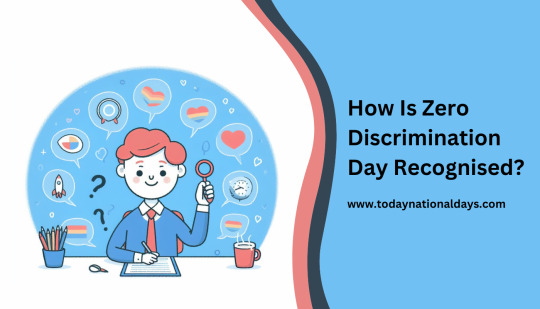
History of Zero Discrimination Day
UNODC advocates for addressing the HIV-related struggles of marginalized groups, like drug users and inmates, who face stigma and discrimination daily. This discrimination not only affects their access to healthcare and support but also reflects broader societal attitudes.
It leads to significant disparities in HIV prevention and treatment, highlighting the need to confront prejudice and promote human rights at all levels.
2 notes
·
View notes
Text
United Nations Zero Discrimination Day 1 March
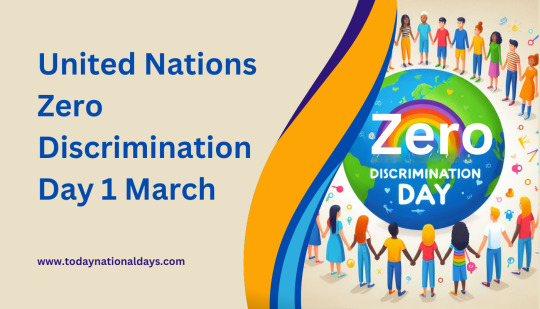
Zero Discrimination Day 1 March, acknowledged by the United Nations and celebrated globally with other international organizations. It was inaugurated on March 1, 2014, by Michel Sidibe, the Executive Director of UNAIDS, following a key event in Beijing on February 27, 2016.
Zero Discrimination Day: Why Is It Important?
Zero Discrimination Day 1 March 2022 focuses on the urgent need to tackle global inequalities. These inequalities span across various aspects such as wealth, gender, age, health status, employment, disabilities, sexual orientation, substance addiction, gender identity, ethnicity, religion, and beliefs.
On March 1, Zero Discrimination Day highlights how we can all learn about and promote inclusiveness, empathy, tolerance, and, most importantly, the need for change. This day aims to advance equality before the law and in practice across nearly all UN member countries.
History of Zero Discrimination Day
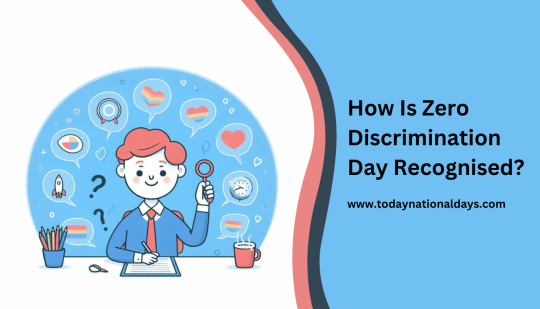
UNODC advocates for addressing the HIV-related struggles of marginalized groups, like drug users and inmates, who face stigma and discrimination daily. This discrimination not only affects their access to healthcare and support but also reflects broader societal attitudes.
It leads to significant disparities in HIV prevention and treatment, highlighting the need to confront prejudice and promote human rights at all levels.
2 notes
·
View notes
Text
United Nations Zero Discrimination Day 1 March
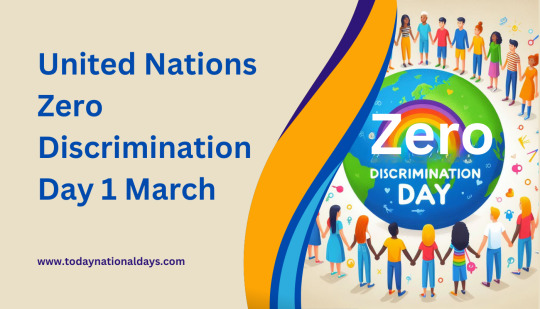
Zero Discrimination Day 1 March, acknowledged by the United Nations and celebrated globally with other international organizations. It was inaugurated on March 1, 2014, by Michel Sidibe, the Executive Director of UNAIDS, following a key event in Beijing on February 27, 2016.
Zero Discrimination Day: Why Is It Important?
Zero Discrimination Day 1 March 2022 focuses on the urgent need to tackle global inequalities. These inequalities span across various aspects such as wealth, gender, age, health status, employment, disabilities, sexual orientation, substance addiction, gender identity, ethnicity, religion, and beliefs.
On March 1, Zero Discrimination Day highlights how we can all learn about and promote inclusiveness, empathy, tolerance, and, most importantly, the need for change. This day aims to advance equality before the law and in practice across nearly all UN member countries.
History of Zero Discrimination Day
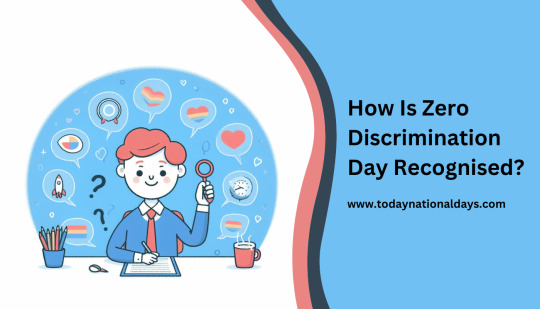
UNODC advocates for addressing the HIV-related struggles of marginalized groups, like drug users and inmates, who face stigma and discrimination daily. This discrimination not only affects their access to healthcare and support but also reflects broader societal attitudes.
It leads to significant disparities in HIV prevention and treatment, highlighting the need to confront prejudice and promote human rights at all levels.
1 note
·
View note
Text
Today's the day!
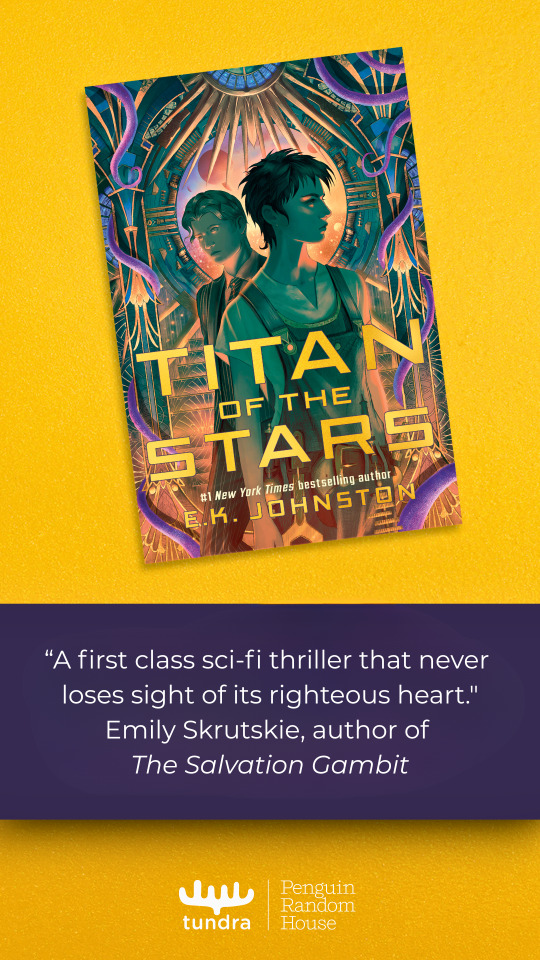
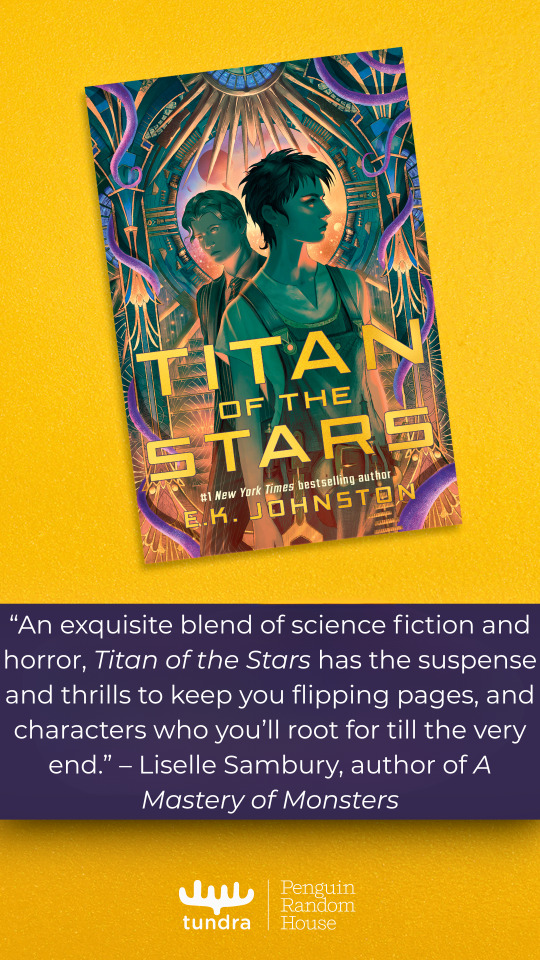
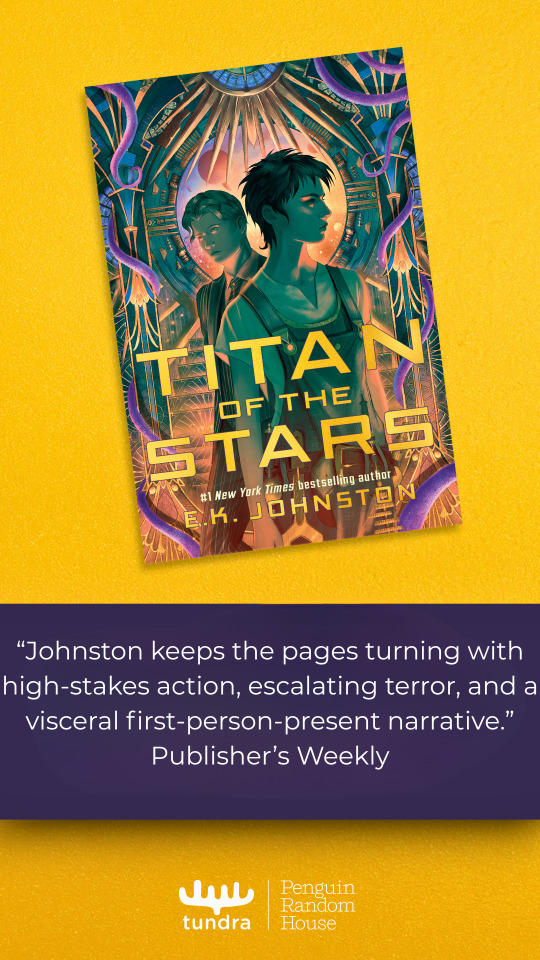
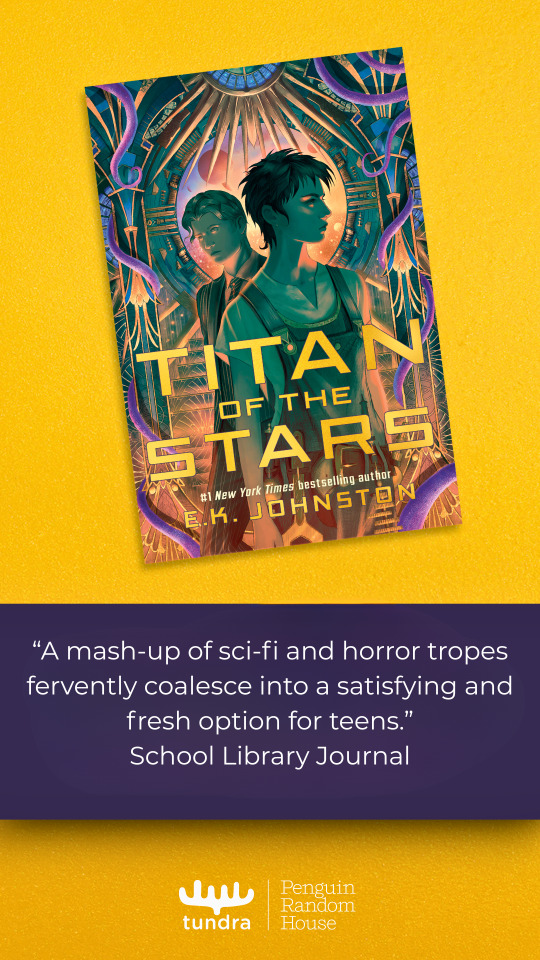
Available in all formats wherever books are sold OR ask your friendly neighbourhood librarian!
Alien meets The Titanic in this tense YA science fiction horror series by #1 New York Times bestselling author E.K. Johnston.
Celeste knows every inch of this ship. She’s proud of her work as apprentice engineer. And as the maiden voyage of the Titan launches, she’s optimistic for the promises of this new journey from Earth to Mars — this new life.
Dominic arrives at his suite where his valet is busy unpacking his things. His chest is tight, already feeling anxious inside his dad’s precious new ship. Once it launches, he’s trapped, inside the ship and inside the life his father has chosen for him — a life that will leave his dreams of art school behind.
Discovered under melted ice caps, ancient aliens have been brought onto the Titan as well, and stored in display cases for the entertainment of the passengers . . . until an act of sabotage releases them into the ship, with zero discrimination for class, decks or human life . . .
367 notes
·
View notes
Text

"There's a whole world beyond your borders, whole tribes of people just as good as you, and it is all in danger. It's a world worth fighting for. Not just here. Everywhere." - Aloy, Horizon Zero Dawn
Personal post under the cut:
This piece not only represents my headcanons for Aloy based on my observations in Horizon playthroughs, but also my tentative relationship with my self-concept of sexuality.
Full disclosure, I don't celebrate Pride Month. Previously, it was due to religious reasons, which, if you were around during the late 2010s, didn't exactly fare well for me when I shared what I thought were immovable, concrete beliefs on the subject.
Fast forward to the mid 2020s, two fandoms later, new friends, new career, new learnings, new connections, etc, and those supposed "immoveable, concrete beliefs" have since changed into something much more amorphous, more considerate and more compassionate. I say I don't celebrate it merely out of lack of spoons, taste, however you may call energy now: I spend enough of it observing Christmas, New Year's, Easter, All Saints' Day and many birthdays.
But that's just me. I know what Pride represents for many people so I'm not here to hark on it or to discourage folks from observing it themselves. I just wanted to be honest. This piece for me, marks something of a declaration. That over the past few years, I've opened myself up to fully sharing that joy and happiness with those who experience it, whether it's a new relationship, a new identity, or even freedom from oppressive situations--all under zero pretenses; as well as being willing to defend my fellow human beings from discrimination and harmful ideologies and behaviors.
"You will know them by their fruit." - Matthew 7:20
It's been a long road from where I once was on the topic of pride and queer identity. Pride, as defined as "overconfidence in oneself, lack of humility, etc." is still significant for me, but I also am aware that this month is not about that. It's about cherishing all human beings, regardless of sexuality, race, identity, etc. It's a response against tyranny, against that desire for domination and control.
After all, everyone is made in the image of God. We are all precious in His sight and we are all meant to live in harmony and peace with one another.
I do not know everything, I might not get everything right—after all, I am only human— but that does not stop me from trying anyway.
If you have any questions or desire clarity about this, please feel free to send me an ask over here on my personal blog. I will not entertain questions on this one for organizational reasons, but I'd love to answer you :)
And as always: Please do not repost! Reblog only!
#pride month#horizon forbidden west#hfw#pride#queer#lgbt#aloy#horizon zero dawn#hzd#qooky art#fan art#demiseuxal#bisexual#happy pride#aloy despite the nora#asexual
143 notes
·
View notes
Note
So! Seeing as the occasion where Killie and Derek met was riddled with geeks, I imagine him introducing himself as Killie would have made lots of ears perk up: people asking if he's got a brother named Fili or whatnot, asking if he's a second-generation geek perhaps, maybe even commenting that IT CHECKS OUT because Kili was considered fair among the dwarves?! Which must have had him in some amount of emotional turmoil, for sure! Tell me when I'm getting close
(Killie the Jockey OC and his terrible, no good, very bad life)
Oh NO. Killie has zero frame of reference for fantasy fiction 🥲
Once he worked out half of what they were talking about - and said something absolutely awful, I’m sure, in response -
- then, in kindness and horror, the geeks would help him assemble the following series of facts:
Killie does not have dwarfism. It would be fine if he did, but he doesn’t.
Killie is on the cusp of being considered a little person; but not having a condition that causes his height, and not particularly experiencing related medical issues or social discrimination, doesn’t self-identify as one.
He’s just at the bottom of the percentile, exactly where the natural distribution meets the definition for little people. Someone has to be there!
That’s maths.
He expresses this with honesty, but not much delicacy.
And somehow without referencing the fact that in his day job, his size is prized.
Killie somehow has not mentioned his day job.
Killie does not understand the concept of the Hobbit, and digs his heels in mulishly at the initial attempts to explain it.
and it has to be rotated several times before being pushed into his head.
Where the nerds suspect that he instantly pushes it out again, with a sort of automatic immune system rejection response. His antibodies simply eject all reference to hobbits and fantasy fiction
Killie has very little imagination anyway
He’s touched too much grass. Grass overdose.
Well. He’s been thrown onto grass at 40 mph too many times and walked away carrying his own bones. That’s like touching grass
And furthermore!!
There is a world of difference between the name shown to him (Kíli) and Killie.
Kíli is KEE—Lee. Anyone can see that. It’s got - it’s got - it’s got í. With the hat on. Look at it. Look at the - thingy. it’s wearing a fucking hat -
Killie is KILL-Y. Rhymes with Billy. Completely different.
At that point Derek breaks in going “I think we’ve all learned something!” And drags him away.
“You’re so interesting, Killie”
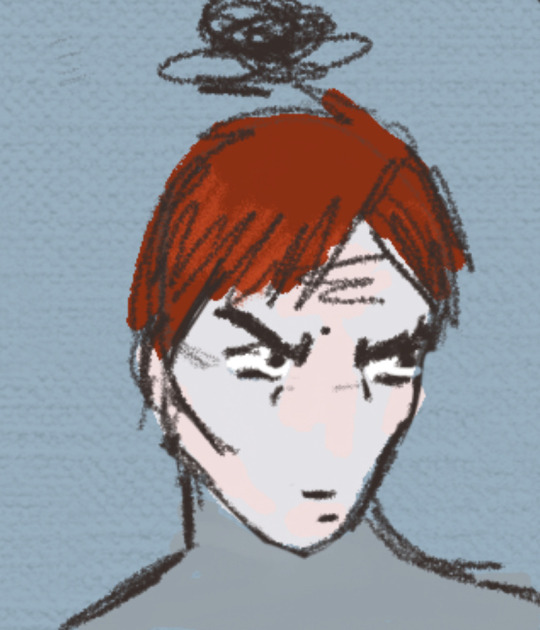
158 notes
·
View notes
Note
I really find the personal side of Qedivar's study of Ishmael and how he relates to him interesting. Are there any misconceptions that Qedivar is kind of projecting onto him because of this feeling of closeness and relatability?
oh GOD yes !!!!!!
i'm going to copy paste some stuff from my dms because i was talking about this exact thing with a friend recently too:
For background I'd not really thought much of the emotional bond between Qedivar and Ishmael until about this week aside from a few jokes about him developing a crush but when actually thinking about it, what stood out to me is the parasocial nature of the bond because of course one is dead and never could have imagined somebody like the other ever existing. There is a voyeuristic slant to it, it's almost similar to making up an oc who suffers continually for your entertainment/catharsis, but it gains this new dimension when the historical figure was real and not just someone you invented, an extension of the self. In this case he's almost turning Ishmael into that extension of himself, adopting him as part of his identity - his biographer.
Qedi lives in a repressive work-work-work environment and he is discriminated against for his characteristics, so he has a natural empathy for Ishmael, but he has these small freedoms that Ishmael couldn't hope for. He is aware of all of this - he's a good scholar and he knows perfectly well (again, more than anyone) what he has and what Ishmael lacked. Basic comforts, for instance
Ultimately the "next morning knowing he's wrong" part comes from some late night imaginings, he has this extreme almost x-ray view of Ishmael at this point, inside and out he has all this information from a 100 year lifespan accessible all at once, this insight which lets him know exactly when he could intervene to "save" Ishmael. If he had a time machine he would know when to appear in Ishmael's life and exactly what he could have said - he could have intervened, because nobody else did when the time was right - but it's a saviour mentality based on an empathetic response to tragedy. In the cold light of day he can go back to writing the paper with objective, detached language, knowing he could have done nothing even if he had been there at the time, because if they were both born in the same time period, he'd have no insight at all into that weird freak from lab block 1. He would behave exactly as everyone else had, with the information available to them.
Which is the big tragedy of being a historian I suppose
The culture Qedivar lives in is one of alienation where you can't even really be friends with anyone, so him thinking he and Ishmael could be friends isn't exactly the right language but an approximation - he'd think they could be close colleagues with an informal friendliness lol. But yes as a bit of an outcast himself the empathy has enough space to turn to this possessive attitude [towards Ishmael]. We're BOTH outcasts therefore I have some degree of authority over how YOU feel.
His own paper is objective and he does a bit of speculation with evidence but the fact of the matter is that outside of Ishmael's own journals (which are not at all exhaustive, he gave up journaling every few months), Qedi has no way of knowing how Ishmael actually felt. He's interpreting and he's fairly accurate but he cannot know the inner thoughts just from video footage and lab write-ups. And in looking at these write-ups, he's also aware that he's participating in the dehumanisation of their subject, hundreds of years later, because they were written by people with zero interest in Ishmael's mental state.
This frustrates Qedi which leads to all that wishful thinking and private speculation and saviour fantasies. But ultimately it does boil down to a kind of "wowww you're so interesting and weird and abused.. I bet I can fix you" arrogance. And, again, knowing from the evidence in front of his eyes, that this is not the case. But it would be nice if it was.
#and then of course you get the effect of being so close to something for so many years that it's become a part of you in that sense too#hyperfixated on One Person's Life... knowing everything about him. it's alienating too. you can't talk to anyone else about it#because you know they'll /never/ care as much as you.#setting: siren
59 notes
·
View notes
Text
Who Broke the Internet? Part II

I'm on a 20+ city book tour for my new novel PICKS AND SHOVELS. Catch me in PITTSBURGH on in THURSDAY (May 15) at WHITE WHALE BOOKS, and in PDX on Jun 20 at BARNES AND NOBLE with BUNNIE HUANG. More tour dates (London, Manchester) here.

"Understood: Who Broke the Internet?" is my new podcast for CBC about the enshittogenic policy decisions that gave rise to enshittification. Episode two just dropped: "ctrl-ctrl-ctrl":
https://www.cbc.ca/listen/cbc-podcasts/1353-the-naked-emperor/episode/16145640-ctrl-ctrl-ctrl
The thesis of the show is straightforward: the internet wasn't killed by ideological failings like "greed," nor by economic concepts like "network effects," nor by some cyclic force of history that drives towards "re-intermediation." Rather, all of these things were able to conquer the open, wild, creative internet because of policies that meant that companies that yielded to greed were able to harness network effects in order to re-intermediate the internet.
My enshittification work starts with the symptoms of enshittification, the procession of pathological changes we can observe as platform users and sellers. Stage one: platforms are good to their end users while locking them in. Stage two: platforms worsen things for those captive users in order to tempt in business customers – who they also lock in. Stage three: platforms squeeze those locked-in business customers (publishers, advertisers, performers, workers, drivers, etc), and leave behind only the smallest atoms of value that are needed to keep users and customers stuck to the system. All the value except for this mingy residue is funneled to shareholders and executives, and the system becomes a pile of shit.
This pattern is immediately recognizable as the one we've all experienced and continue to experience, from eBay taking away your right to sue when you're ripped off:
https://www.valueaddedresource.net/ebay-user-agreement-may-2025-arbitration/
Or Duolingo replacing human language instructors with AI, even though by definition language learners are not capable of identifying and correcting errors in AI-generated language instruction (if you knew more about a language than the AI, you wouldn't need Duolingo):
https://www.bloodinthemachine.com/p/the-ai-jobs-crisis-is-here-now
I could cite examples all day long, from companies as central as Amazon:
https://pluralistic.net/2022/11/28/enshittification/#relentless-payola
To smarthome niche products like Sonos:
https://www.reuters.com/business/retail-consumer/sonos-ceo-patrick-spence-steps-down-after-app-update-debacle-2025-01-13/
To professional tools like Photoshop:
https://pluralistic.net/2022/10/28/fade-to-black/#trust-the-process
To medical implants like artificial eyes:
https://pluralistic.net/2022/12/12/unsafe-at-any-speed/#this-is-literally-your-brain-on-capitalism
To the entire nursing profession:
https://pluralistic.net/2024/12/18/loose-flapping-ends/#luigi-has-a-point
To the cars on our streets:
https://pluralistic.net/2023/07/24/rent-to-pwn/#kitt-is-a-demon
And the gig workers who drive them:
https://pluralistic.net/2023/04/12/algorithmic-wage-discrimination/#fishers-of-men
There is clearly an epidemic – a pandemic – of enshittification, and cataloging the symptoms is important to tracking the spread of the disease. But if we're going to do something to stem the tide, we need to identify the contagion. What caused enshittification to take root, what allows it to spread, and who was patient zero?
That's where "Understood: Who Broke the Internet?" comes in:
https://www.cbc.ca/listen/cbc-podcasts/1353-the-naked-emperor
At root, "enshittification" is a story about constraints – not the bad things that platforms are doing now, but rather, the forces that stopped them from doing those things before. There are four of those constraints:
I. Competition: When we stopped enforcing antitrust law, we let companies buy their competitors ("It is better to buy than to compete" -M. Zuckerberg). That insulated companies from market-based punishments for enshittification, because a handful of large companies can enshittify in lockstep, matching each other antifeature for antifeature. You can't shop your way out of a monopoly.
II. Regulation: The collapse of tech into "five giant websites, each filled with screenshots of the other four" (-T. Eastman) allowed the Big Tech cartel to collude to capture its regulators. Tech companies don't have to worry about governments stepping in to punish them for enshittificatory tactics, because the government is on Big Tech's side.
III. Labor: When tech workers were scarce and companies competed fiercely for their labor, they were able to resist demands to enshittify the products they created and cared about. But "I fight for the user," only works if you have power over your boss, and scarcity-derived power is brittle, crumbling as soon as labor supply catches up with demand (this is why tech bosses are so excited to repeat the story that AI can replace programmers – whether or not it's true, it is an effective way to gut scarcity-driven tech worker power). Without unions, tech worker power vanished.
IV. Interoperability: The same digital flexibility that lets tech companies pull the enshittifying bait-and-switch whereby prices, recommendations, and costs are constantly changing cuts both ways. Digital toolsmiths have always thwarted enshittification with ad- and tracker-blockers, alternative clients, scrapers, etc. In a world of infinitely flexible computers, every 10' high pile of shit summons a hacker with an 11' ladder.
This week's episode of "Who Broke the Internet?" focuses on those IP laws, specifically, the legislative history of the Digital Millennium Copyright Act, a 1998 law whose Section 1201 bans any kind of disenshittifying mods and hacks.
We open the episode with Dmitry Skylarov being arrested at Def Con in 2001, after he gave a presentation explaining how he defeated the DRM on Adobe ebooks, so that ebook owners could move their books between devices and open them with different readers. Skylarov was a young father of two, a computer scientist, who found himself in the FBI's clutches, facing a lengthy prison sentence for telling an American audience that Adobe's product was defective, and explaining how to exploit its defects to let them read their own books.
Skylarov was the first person charged with a felony under DMCA 1201, and while the fact of his arrest shocked technically minded people at the time, it was hardly a surprise to anyone familiar with DMCA 1201. This was a law acting exactly as intended.
DMCA 1201 has its origins in the mid-1990s, when Al Gore was put in charge of the National Information Infrastructure program to demilitarize the internet and open it for civilian use (AKA the "Information Superhighway"). Gore came into conflict with Bruce Lehman, Bill Clinton's IP Czar, who proposed a long list of far-ranging, highly restrictive rules for the new internet, including an "anticircumvention" rule that would ban tampering with digital locks.
This was a pretty obscure and technical debate, but some people immediately grasped its significance. Pam Samuelson, the eminent Berkeley copyright scholar, raised the alarm, rallying a diverse coalition against Lehman's proposal. They won – Gore rejected Lehman's ideas and sent him packing. But Lehman didn't give up easily – he flew straight to Geneva, where he arm-twisted the UN's World Property Organization into passing two "internet treaties" that were virtually identical to the proposals that Gore had rejected. Then, Lehman went back to the USA and insisted that Congress had to overrule Gore and live up to its international obligations by adopting his law. As Lehman said – on some archival tape we were lucky to recover – he did "an end-run around Congress."
Lehman had been warned, in eye-watering detail, about the way that his rule protecting digital locks would turn into a system of private laws. Once a device was computerized, all a manufacturer needed to do was wrap it in a digital lock, and in that instant, it would become a literal felony of use that digital device in ways the manufacturer didn't like. It didn't matter if you were legally entitled to do something, like taking your car to an independent mechanic, refilling your ink cartridge, blocking tracking on Instagram, or reading your Kindle books on a Kobo device. The fact that tampering with digital locks was a crime, combined with the fact that you had to get around a digital lock to do these things, made these things illegal.
Lehman knew that this would happen. The fact that his law led – in just a few short years – to a computer scientist being locked up by the FBI for disclosing defects in a widely used consumer product, was absolutely foreseeable at the time Lehman was doing his Geneva two-step and "doing an end-run around Congress."
The point is that there were always greedy bosses, and since the turn of the century, they'd had the ability to use digital tools to enshittify their services. What changed wasn't the greed – it was the law. When Bruce Lehman disarmed every computer user, he rendered us helpless against the predatory instincts of anyone with a digital product or service, at a moment when everything was being digitized.
This week's episode recovers some of the lost history, an act I find very liberating. It's easy to feel like you're a prisoner of destiny, whose life is being shaped by vast, impersonal forces. But the enshittificatory torments of the modern digital age are the result of specific choices, made by named people, in living memory. Knowing who did this to us, and what they did, is the first step to undoing it.
In next week's episode, we'll tell you about the economic theories that created the "five giant websites filled with screenshots of the other four." We'll tell you who foisted those policies on us, and show you the bright line from them to the dominance of companies like Amazon. And we'll set up the conclusion, where we'll tell you how we'll wipe out the legacies of these monsters of history and kill the enshitternet.
Get "Understood: Who Broke the Internet?" in whatever enshittified app you get your podcasts on (or on Antennapod, which is pretty great). Here's the RSS:
https://www.cbc.ca/podcasting/includes/nakedemperor.xml

If you'd like an essay-formatted version of this post to read or share, here's a link to it on pluralistic.net, my surveillance-free, ad-free, tracker-free blog:
https://pluralistic.net/2025/05/13/ctrl-ctrl-ctrl/#free-dmitry
#podcasts#enshittification#bruce lehman#dmitry syklarov#defcon#dmca#dmca 1201#cbc#cbc understood#understood#pluralistic#dmitry skylarov
97 notes
·
View notes
Text
On Emilia, Fandom Double Standards, and Summary Culture: A Thread
*Some Unmarked Arc 7 and 8 Spoilers ahead.

To preface this, my rambling will be a lot less structured with fewer screenshots of supporting evidence than I usually provide. This is more just my stream of consciousness edited down into something readable. When it comes to Emilia, I also fully admit to having a bias.
Her character struck a chord with me when I read Re: Zero for the first time, and I don’t hesitate to admit that. Alongside Otto and Subaru, I felt many of her issues reflected some things from my own life as an autistic person, even if it was perhaps unintentional.
The struggle with social interaction, the difficulty with maintaining friendships, the inability to stand up for oneself in fear of burdening others, etc. Even how she was treated by society kind of matched up with that, even if the discrimination was more analogous to racism.
Now I’m just me. My interpretations are just extensions of my experience. My self-indulgent rant here is me merely commenting on my perspective of quite a bit of ongoing community discourse I just find tiring, often feeling misguided at best and actively bad faith at worst.
My general frustration with Emilia's discourse is that I feel a lot of it blows the worst aspects of her writing out of proportion, actively ignores her best writing, and/or makes statements about the content the person fully admits to not having read.
The latter in particular irks me, as it seems to be representative of a bigger issue in this community, that I will cover in more detail later.
In a lot of ways, Emilia’s treatment kind of reminds me a lot about how female characters are treated in Shonen's discourse.
Sure, the narrative doesn’t always treat them the best, but anything positive is buried under a hyper-focus on negatives even if they take up a fraction of screen time. People judge them based on out-of-context panels or summaries without ever touching the scenes themselves.
If they are too competent, they’re a boring “Mary Sue” or whatever buzzword people are using that day, while if they don’t solve everything instantly they’re a useless burden on the plot who are carried by “plot armor,” or once again whatever buzzwords people are using that day. Often, many female characters have been ascribed both labels, without people stopping to consider how contradictory these elements.
And this kind of discourse, this contradictory mess based on hearsay and summaries, is the kind of thing that frustrates me.
I think the best example of this in regard to Emilia is how people discuss her flaws. All too often, people act like her flaws don’t exist or are “stupid,” something that comes off frustratingly ignorant for someone who's been in many of the same places she’s been.
I knew what it was like to realize you needed to cut friends out of your life who treated you as less of a person. I knew what it was like to have to be forced into growing to stand up for yourself, moving away from a parent who infantilized you just because of who you were.
I knew what it was like to have to fully address things about myself I wanted to bury and act like didn’t exist. To act like these experiences weren’t real like they were things no one ever went through, is such a strange thing. Perhaps they aren’t handled the best in places, something I feel is fair to discuss, but of course, nuance can’t exist in these discussions. Or how about the way people talk about Emilia in other arcs?
While I don’t like how Emilia is handled in WN Arc 5, I think the LN highlights how she’s developed in a similar way to how the same arc is used to highlight how Subaru has developed. She stands up to Regulus, beats his ass for the women unable to stand up for themselves like she had once been able to, and resolves to save them despite the impossible circumstances just like how Subaru often does. She refuses to give into despair and wait to be rescued as she once did, being core to Regulus' defense. Yet, of course, none of that is focused on.
Instead, we have to deal with inane discussions about a few sentences in the totality of her arc, throwing out hyperbolic statements about how a random shitty joke “ruins” her character or something. Her role as a narrative foil to Regulus?
How her focus on names in the arc tie into themes of identity? Her breaking of fate by freeing the wives? Nah, she's little more than a "Mary Sue" because she achieves something against Regulus/she doesn’t do anything despite literally being one of the main reasons they won.
Similar things apply to Arc 6. It’s an arc not focusing on her, but it does go out of its way to showcase her development. Her relationship with Ram? Her perseverance in the face of an enemy she can’t do anything against in Volcanica? Her helping Subaru in the same way he helped her, fully swapping roles with him? None of that matters in the face of a 10-sentence scene where Reid pokes her tits.
Arcs 7 and 8 are perhaps the most egregious showcase of these issues. In general, the Vollachia saga does not focus much on the Emilia Camp. Hell, some of them contribute nothing. Yet still, Emilia gets a fair bit to do. She’s able to read people like Vincent, within seconds of discussion and connects down to the root of who people are quickly.

She cuts through the bullshit of people like Priscilla and Vincent quickly, forcing them to meet her on her level rather than act all high and mighty. She forces her way into the hearts of those who refuse to see reason like Madelyn.

More than ever, she showcases her true merits as a member of the Emilia Camp during high-stress situations like Vollachia. She’s a lot like Subaru in that way… Which brings me to my next point: Fuck, do people understate how similar her and Subaru are.
In a community that will analyze every little detail to find even a hint of parallels between Subaru and other characters, to the point of sometimes actively ignoring existing characterization, Emilia seldom gets highlighted. She goes through a similar arc of regaining self-worth, a similar of grappling with heroism, a similar arc of really figuring out who exactly she wants to be to others. She does the whole “wanting to believe she’s giving her full effort so someone else will tell her it’s alright that she failed and then gave up” thing in Arc 4 that matches what Subaru himself did in Arc 3. Hell, even her parental figures in Fortuna and Guese are written to be close parallels to Subaru’s parents (though with Fortuna being akin to Kenichi and Guese being akin to Naoko), something I’ve seen highlighted maybe once ever by someone other than me despite her backstory with them being in the SAME ARC.
It’s just a weird double standard, with people displaying an unwillingness to give her the same level of engagement they give other characters.
On the other hand, she also suffers from the same thing as many other Re: Zero characters where she gets reduced to ONLY her dynamic with Subaru. She has a lot of relationships with other characters around her like Puck, Ram, Otto, Priscilla, etc. that rarely receive attention. This is not unique to her of course (don’t get me STARTED on Julius, Reinhard, and Otto’s treatment by the community) but it is notable with her when the story itself goes after Subaru for ignoring her own autonomy separate from him. This is something people love to point out in regards to how it helps Subaru as a character, but when it comes to Emilia, many engage with her through the exact same kind of thought.
Because Subaru is the only character who matters.
Because anything beyond Subaru only exists for him. Even if an arc has nothing to do with him, even if a character is actively used as more of a foil for someone else, it all has to tie back to him. The world revolves around Subaru.
And it’s not like I don’t get it. Subaru is fascinating. He’s literally my 2nd favorite character in fiction. I’ve gone at length talking about all the little things I love about him so, so, so many times because doing so just fills me with joy.
I just want characters to be able to exist, interact, and do stuff outside of him without everything having to immediately loop back to him.
Going back to Emilia though, I do want to make it clear at this point that I don’t think Emilia is perfect or anything. I guarantee you that many of the things that frustrate you frustrate me a HELL of a lot more. I do think she should have a bit more page time in certain arcs, I do think Tappei has the narrative treat her weirdly sometimes, and I do think she is infantilized often. I will be the first to point out scenes I think undercut her development or treat her like a child. I could ramble all day about a few scenes I dislike throughout Re: Zero and I have gone at length about my issues with how Tappei fetishizes her.
I just think it’s kind of disingenuous to have this be the only discourse around her. To many in this community, a character must be perfect with no flaws or trash that ruins the narrative. Nuanced discussion, analyzing a character for their negatives and positives, can’t exist. Instead, we’ve got to mention the stupid Divine General joke even in the in-universe narrative that seems to disregard it for the 10th time. We have to talk about the snarky one-liner from Otto that is so strangely mean and condescending it feels out of character for him.
I’m not saying that we shouldn’t discuss it, but the overwhelming amount of focus on these singular moments as compared to other characters who get the same treatment narratively can be frustrating. We loop back to these singular sentences repeatedly that people saw in a summary or screenshot rather than reading the arc because that’s the only way half this fandom engages with anything anymore.
And once again, I think that’s really what irks me. I think I would be a lot more fair towards the general discourse if I felt like it was coming from a place of good faith; from people who were reading the thing they were talking about. But that’s not exactly what’s happening, is it? Instead, you see people quoting AI translations about as good as a 5-year-old’s book report, you see the same screenshot shared by those who “haven’t read the arc yet, but,” and you see the same wrong information someone said in a summary months ago pop up repeatedly.
It’s such a gross way to engage with media to me. Reducing it from art—something to experience—to slop to shovel down one’s throat. It’s the kind of lazy, unengaged behavior that has led to series being entirely engaged with through Wikipedia summaries and YouTube video essays. Why let yourself get invested when you can just learn everything there is about the basic plot in 10 minutes? Why let yourself be surprised by the twists and turns of a tale when you can just look up the secret beforehand? Why view something as a work of art instead of simple content to be discarded as soon as you know everything there is to know? And if you know all about it, why bother listening to the analysis of anyone who actually engages with the source material, providing quotes, when it’s all just coping and reading into things too much?
There’s an arrogance that comes from that specific kind of media ignorance, and it applies most to female characters. Subaru’s a victim of that slop content approach to media too of course, but it seems to be most prominent with the female characters who surround him. All too often in the anime community, people overcorrect in response to any issues in a female character’s writing. They see a flaw and go “Guess this character is awful,” before proceeding to ignore every previous and future aspect of that character, good or bad.
And the failure to apply a holistic analysis of the merits of Tappei’s character writing is not limited to the shitty gags he writes for Emilia. Pretty much every character in this series has one, and often way more, scenes where something similarly shitty is done.
Priscilla has a gag about being creepy to children. Al makes weird comments about women, some of them being minors. Rem’s love for Subaru is played up to rapey extents in certain side stories. Otto’s struggles with someone who tried to have him killed are reduced to a gag. And who can forget the holy grail of infantilization, Beatrice? The character the story itself calls Subaru’s mother figure, whose entire character arc is predicated on exercising her autonomy, is constantly treated like a child for the sake of comedy. Arguably, she’s subjected to infantilization far more than Emilia ever has been.
Yet, these gags are often ignored, written off as the shitty attempts at humor they are. They still exist and are frustrating, but they aren’t the only pieces of discussion about a character. After all, many people have had to realize at this point that Re: Zero isn’t immune to the same shitty tropes as the rest of the genre. It is subversive of many of its tropes, but it utilizes those same tropes as it pleases, picking and choosing what it wants to deconstruct. As someone who adores this series, I feel like it would be disingenuous of me to claim otherwise.
Yet even acknowledging that, I think Re: Zero and its characters are some of my favorites in any fictional work I've read. When it comes to characters like Al, Priscilla, Rem, Otto, and Beatrice there’s just so much to analyze and admire about them. They tie into the story, the themes, and the characters around them in such fascinating ways that people have written literal essays about them.
Some of it may not be intentional. Some of it may just be my own experiences being projected. Some of it may just be connections that exist only in my mind...but that’s how art works. You are supposed to look at it with bias, whether it be yours, the author’s, or someone else’s.
These are interpretations I can make about these characters, regardless of what anyone else thinks. The author’s intentions, by virtue of not being directly stated to the audience, aren't the only way to read a story. It’s my prerogative as a reader to look at a story through a lens that works best for me.
Ultimately, much of this fandom’s disingenuous treatment of Emilia’s depth as a character is the result of people refusing to have their own opinions and takes on Re: Zero. Rather than reading the story, engaging with it, and interpreting it through their preferred lens, they borrow the rhetoric spouted by others without any critical thinking involved. That’s not to say this applies to everyone who dislikes the character.
You can dislike a character for many reasons, after all. You don’t have to justify it. If they just don't interest you, fuck them. Think whatever you wish and be whoever you want.
But if your reason is that you saw an out-of-context screenshot or summary from someone —if your reason is that you hold them to a standard that does not apply to other characters—that feels rather weak, doesn’t it?
In the end, all commentary on art is subjective. There’s no right way to read a story or watch a show. But there are definitely lazy ways. The only way to counteract this kind of thought is to read, to watch, and to think about the things put in front of you. Truly look at a story for what it is, good and bad.
When I did that, I found a character that I was able to connect with. Maybe you won’t, but that’s just how I feel about Emilia.
89 notes
·
View notes